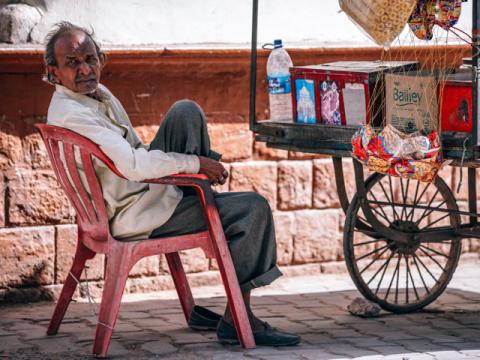
Our life in this world is, but temporary. Sickness and death is a path that most must take. And it comes to pass either with grace or in the throes of suffering. For the unfortunate ones who fall into the latter category, while death is inevitable, the suffering can be alleviated. This is the central philosophy of palliative care.
None of us can choose the span of our lives. Neither can we choose what sickness or disease afflicts us. However, the choice that every single person wants for themselves and their loved one is to get well. When that is not an option, we feel the world has collapsed around us. It is very difficult to accept the hard truths in life. This prompts people to stake all on even the slightest promise of cure, however false that may be. And unfortunately in this world, there are plenty of people who capitalise on that thread of hope, and refuse to get facts straight. What this leads to, is not just the finality of death to the afflicted, but also totally depleted resources, emotionally as well as financially, for them in the family that still have to move forward.
While the concept of palliative care started as early as 1940s in Britain, as a hospice care centre, it was only in 1993 these service started in Kerala. This does not mean that our people have wholly welcomed the idea. On the contrary, many people are opposed to the idea. Palliative care is often misunderstood with terms like ‘assisted dying’ or ‘dying with dignity movement’ or sometimes even, euthanasia. Nothing could be further from the truth. Palliative care intends to neither hasten nor postpone death. But it merely provides relief from pain and other distressing symptoms of the disease process, and attempts to integrate the psychological and spiritual aspects of patient care for the carers as well.
Palliative care has come a long way from its beginning as a hospice care. While many think it is only for the dying, palliative care is not only for those who have terminal illness, but other life-limiting illness as well. The greatest challenge to palliative care is the lack of awareness among people of these principles of care. The misconception attached to morphine, the false belief that palliative care is about keeping the loved ones totally sedated, or the common perception that palliative care is only for the dying and that initiation of palliative care leads to the cessation of all other treatments, are some of the biggest roadblocks to the successful delivery of care to the patient. And by not engaging with it, they are also denying themselves the life-support systems that are so valuable when caring for someone with long-standing illness.
It is said the greatest tragedy in life is not death, but a life without a purpose. The greatest tragedy of the death of a loved one would be, not in dying itself, but losing out the opportunity to give them a peaceful journey to it. The greatest tragedies in life is not death, but a life without purpose. And I would say the greatest tragedy of death is not dying in itself, but losing out the opportunity to give our loved ones a peaceful death.
 LifeToDays
LifeToDays 